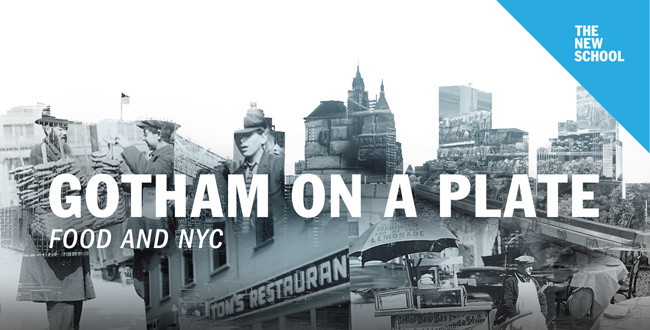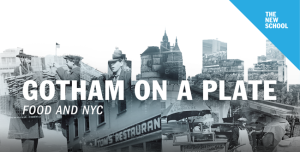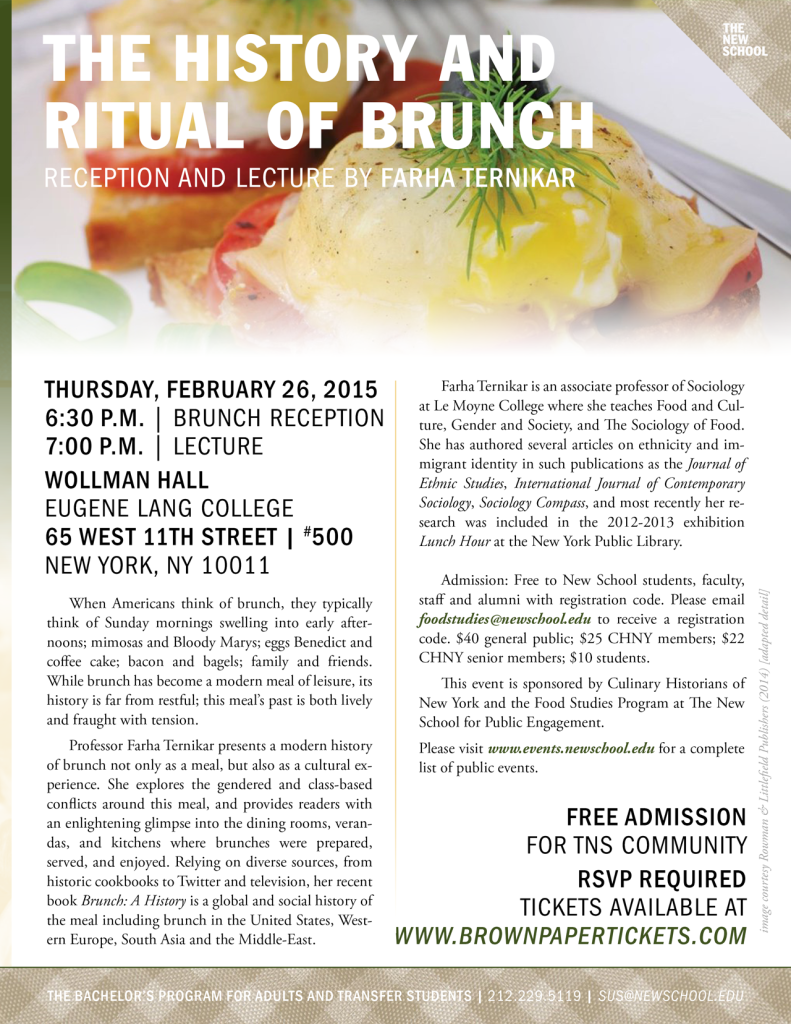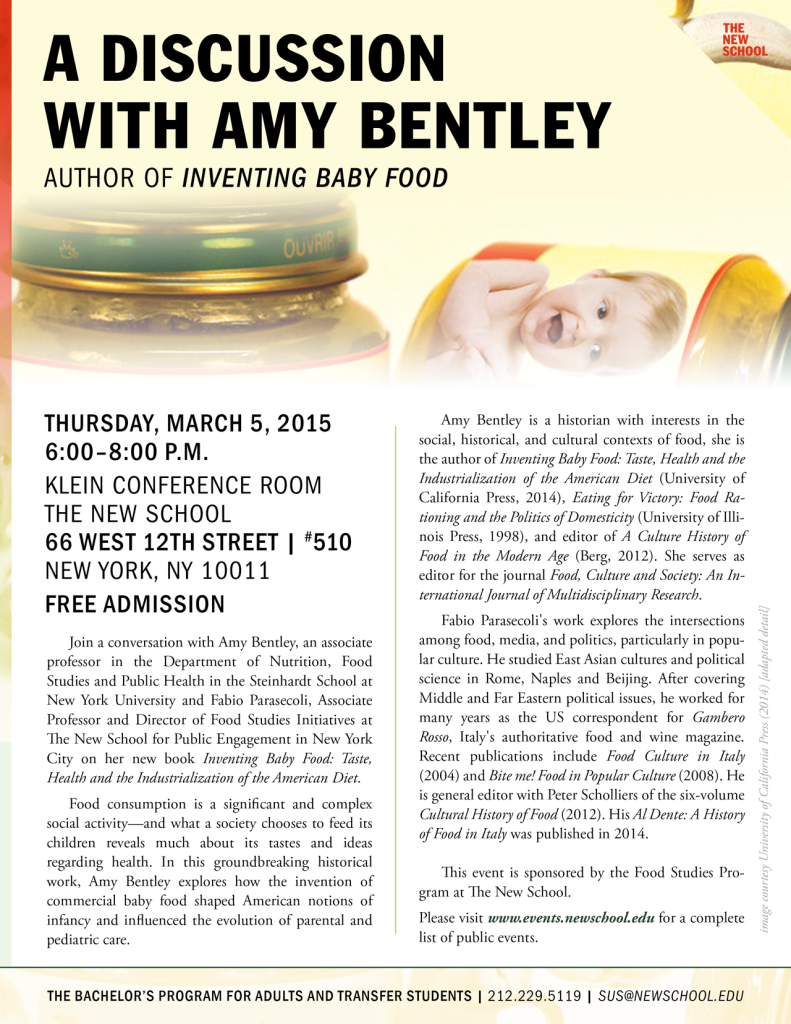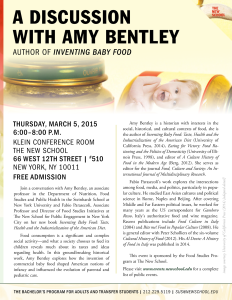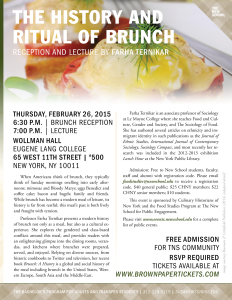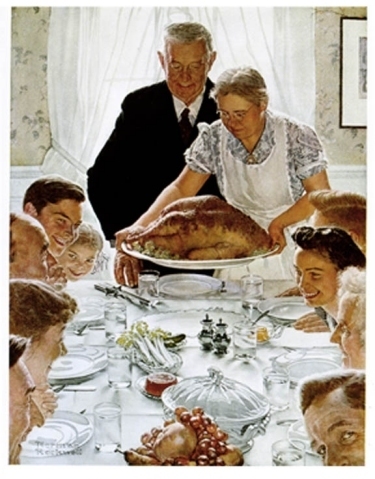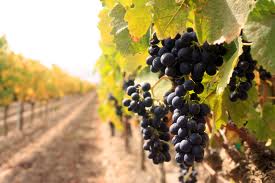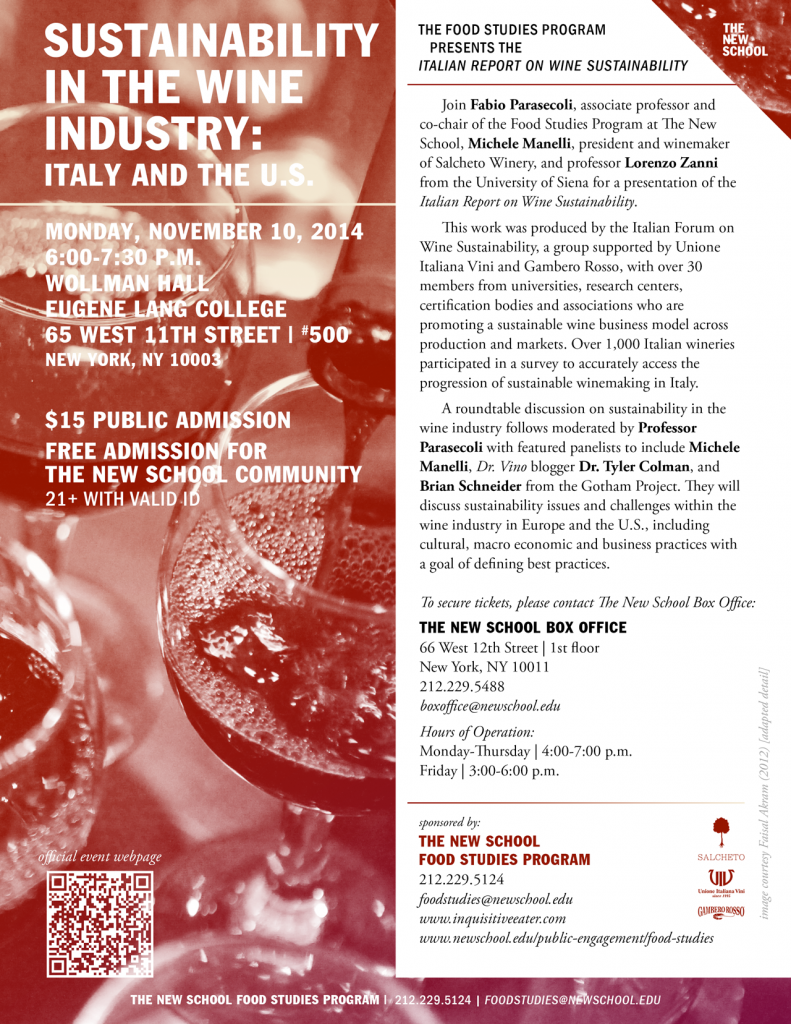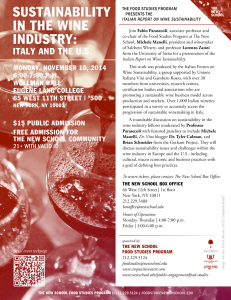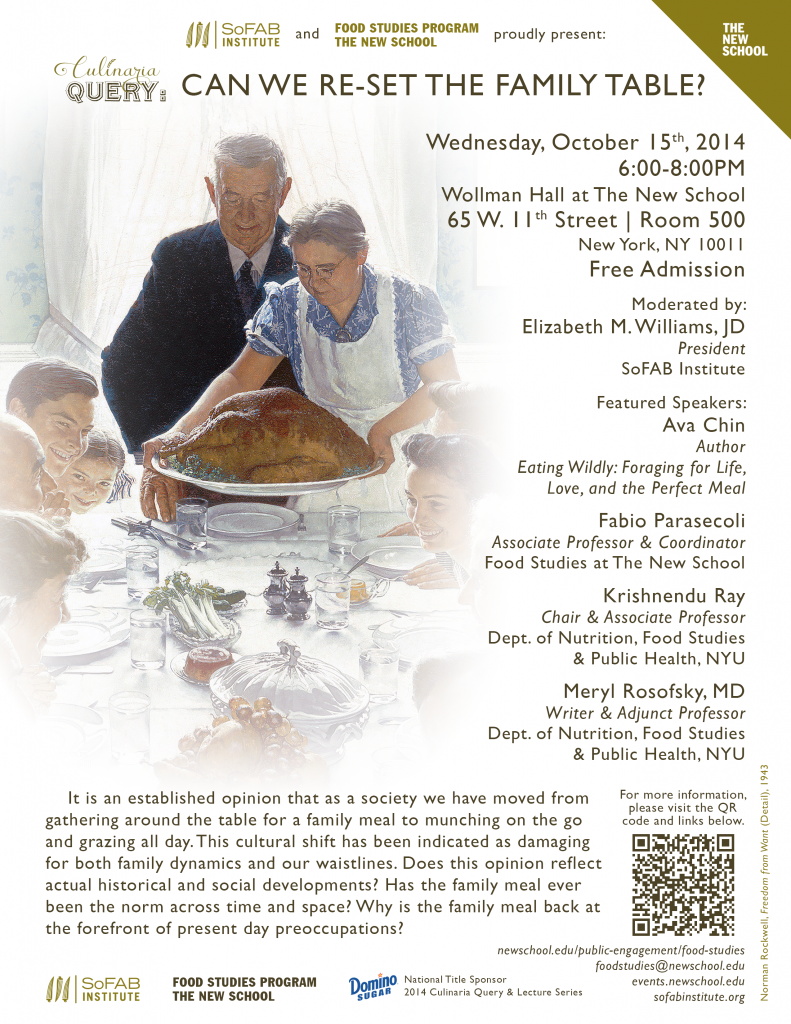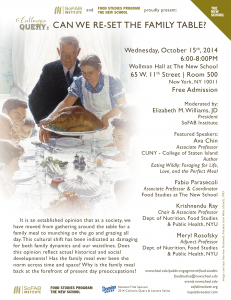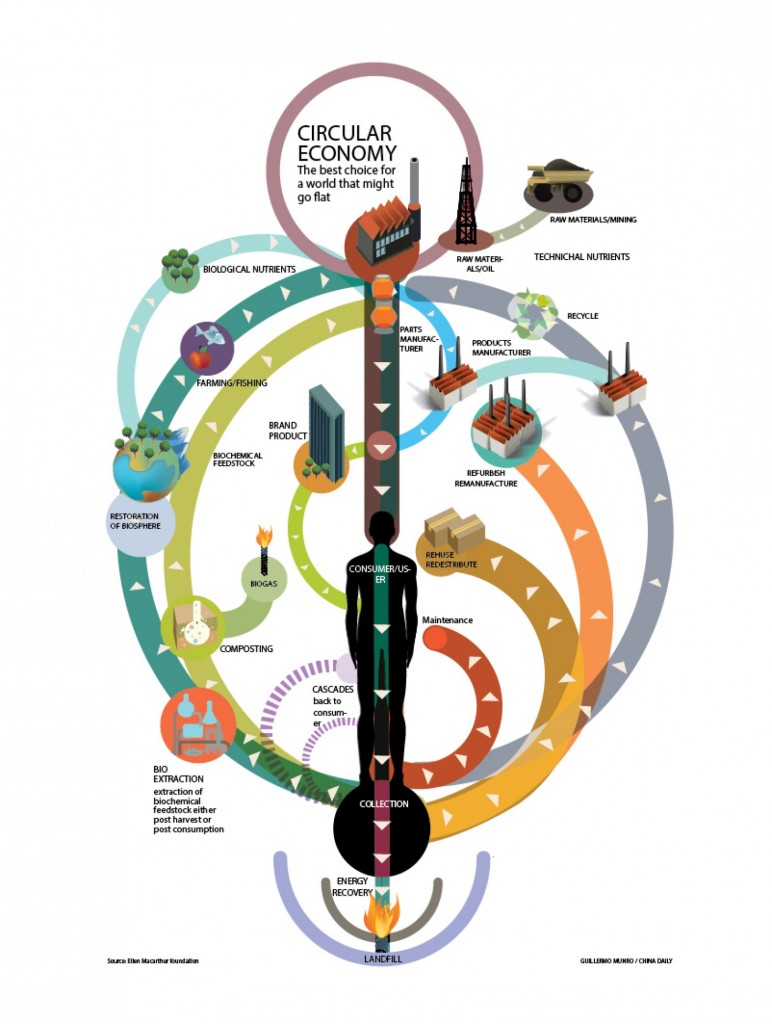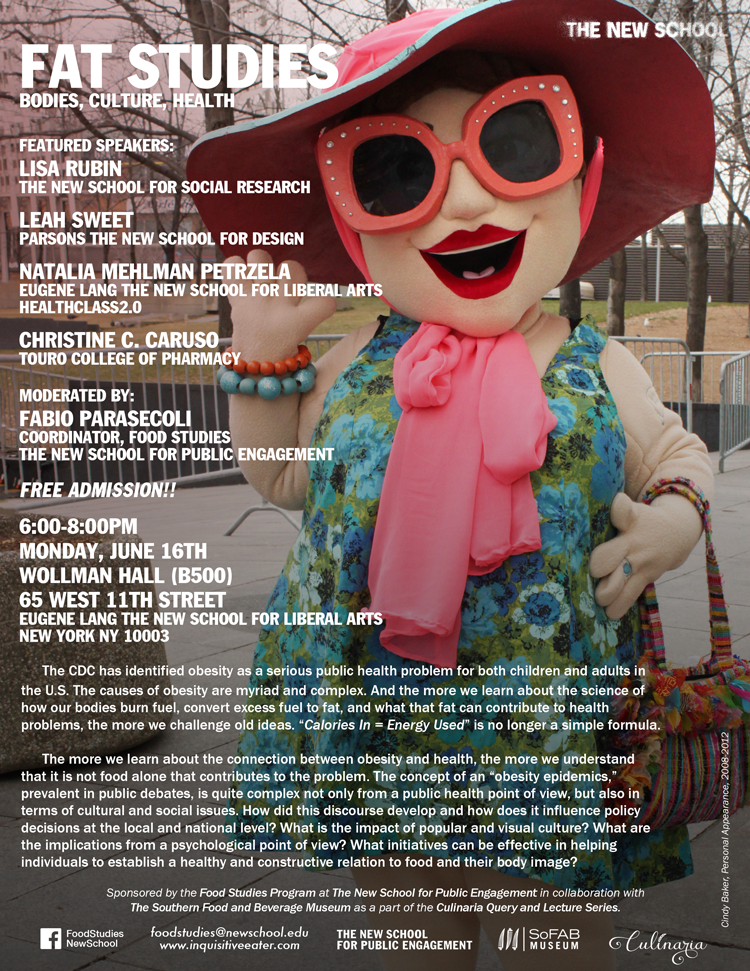Food is crucial in the present and the future of New Yorkers. This two-day conference brings together experts, scholars, and professionals to discuss aspects of food in New York City. Six panels will cover topics as varied as history, places of consumption, provisioning and the connection with the region, the impact of the media on the food business, policy debates, crises and post-Sandy resiliency.
Keynote Speaker
Mimi Sheraton is a journalist, restaurant critic, consultant, lecturer, and cookbook writer who has lived in Greenwich Village for 70 years.
Panelists
Marion Nestle, scholar, author and educator she is the New York University professor who established food studies as a legitimate subject for investigation and scholarship in the United States.
Hasia Diner, the Paul and Sylvia Sternberg Professor of Jewish History at New York University and author ofHungering for America.
Simone Cinotto, professor at the University of Gastronomic Sciences in Pollens, Italy, and author of The Italian American Table.
Anne Mendelson, independent scholar and author of the forthcoming Gold Mountain Table, a history of Chinese food in the United States.
Farha Ternikar, associate professor of Sociology at Le Moyne College, where she is working on food and South Asian identity in the United States.
Cathy Kaufman, chairman of the Culinary Historians of New York and senior editor of the forthcomingSavoring Gotham.
Michael Whiteman, trends pundit and president of Baum+Whiteman International Restaurant Consultants.
Jacqueline Raposo, writer for Serious Eats, Tasting Table, Plate Magazine, and her own blog, Words.Food.Art.
David Rosengarten, former Gourmet magazine New York restaurant critic and voice behind The Rosengarten Report.
Adam Platt, restaurant critic for New York Magazine and self-described bilious gourmand.
Drew Nieporent, restaurateur and founder of the Myriad Restaurant Group.
Rozanne Gold, four-time James Beard award-winning chef, author and journalist, who is currently an MFA candidate in poetry at the New School.
William Grimes, New York Times reporter and author of Appetite City: A Culinary History of New York (2009).
Molly O’Neil, former New York Times columnist and author of New York Cookbook: From Pelham Bay to Park Avenue, Firehouses to Four-Star Restaurants.
Jonathan Deutsch, Professor and Director Culinary Arts and Food Science, Drexel University, and co-author of Gastropolis: Food & New York City (2008).
Gabrielle Langholtz, editor of Edible Manhattan.
Andrew F. Smith, New School faculty member and author of New York City: A Food Biography (2013).
Conference Admission
price includes 1 or 2 day attendance
$99 General Public. Please find the box office link at the top right side of this page.
Free to all students and New School faculty, alumni and staff with ID. Please register here.

